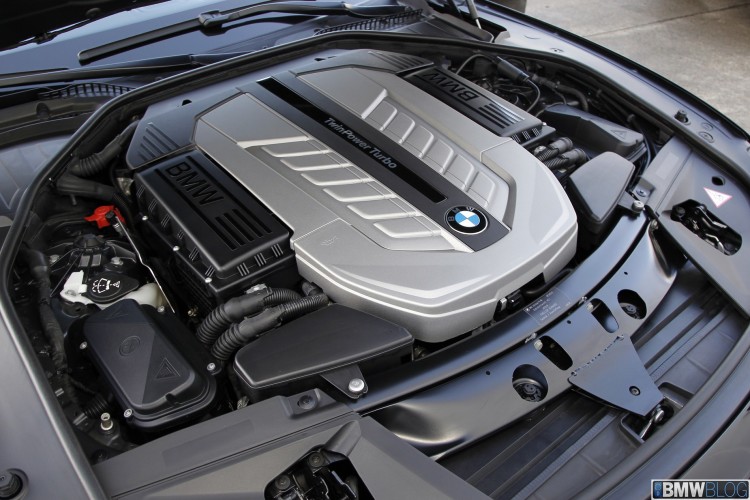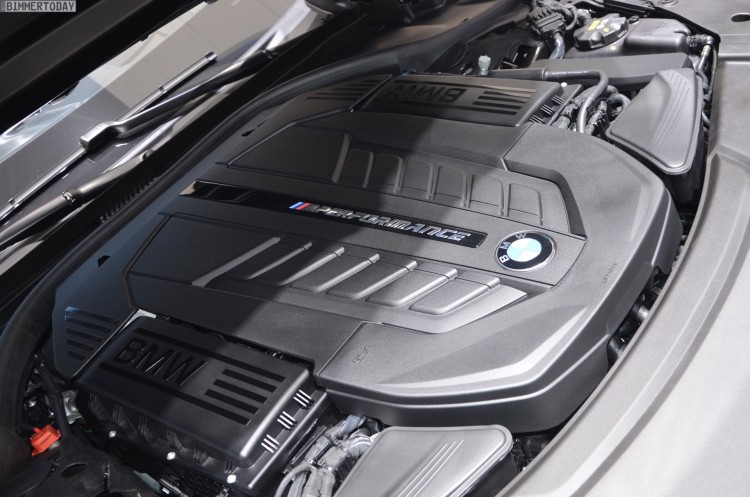BMW N74 V12: Features, Reliability, and Tuning Potential


The BMW N74 is an engineering marvel that represents the pinnacle of BMW’s engine development. Introduced in 2008, the N74 replaced the legendary N73 V12 and brought modern advancements to BMW’s flagship engine architecture. It powered some of BMW’s most luxurious and high-performance vehicles, including the 7 Series, Rolls-Royce Ghost, Wraith, and Cullinan, before being phased out in favor of electrification. This article delves into the features, reliability, and tuning potential of the N74 V12 engine.
Features of the BMW N74 V12 Engine


The N74 is a twin-turbocharged V12 engine, with displacements ranging from 6.0 to 6.75 liters, depending on the variant. The turbochargers are positioned externally on the engine and operate with a boost pressure of 11.6 psi (0.8 bar).
- Twin-Turbocharging – The N74 employs two turbochargers, one for each bank of cylinders, delivering a boost pressure of approximately 11.6 psi. This setup ensures a broad torque curve and responsive acceleration.
- Direct Fuel Injection and Variable Valve Timing – Equipped with high-pressure direct injection and BMW’s Double-VANOS variable valve timing, the N74 achieves precise fuel delivery and optimal combustion efficiency, enhancing both performance and fuel economy.
- Aluminum Construction – The engine features an aluminum block and heads, reducing weight and improving thermal efficiency, which contributes to better vehicle handling and performance.
- Smoothness and Refinement – The V12 configuration inherently provides exceptional smoothness with minimal vibration, offering a refined and luxurious driving experience, a characteristic highly valued in both BMW and Rolls-Royce models.
- Performance Specifications – Depending on the variant, the N74 produces:
- Power Output -Ranging from 536 hp in the early 6.0-liter versions to 624 hp in the 6.6-liter configurations used in models like the Rolls-Royce Wraith.
- Torque – Delivering between 553 lb-ft (750 Nm) to 664 lb-ft (900 Nm), ensuring robust acceleration across various models.
Reliability of the BMW N74
The N74 V12 is widely regarded as an exceptionally reliable platform. Its robust engineering and high-quality components have earned it a reputation as one of the best V12 engines ever produced. Having been in production for over a decade, it has proven its durability in both BMW and Rolls-Royce vehicles, where longevity and reliability are paramount.
While the N74 is a remarkable engine, it isn’t entirely without its quirks. If you’re considering a BMW 7 Series equipped with this powerhouse, there are a few potential issues to keep in mind.
High-Pressure Fuel Pump (HPFP) Issues
One commonly reported problem among N74 owners on various forums is the failure of the high-pressure fuel pump. This critical component is responsible for delivering fuel to the engine at the precise pressure needed for optimal performance. Failures tend to occur more frequently in older models and often happen without any prior warning, potentially leading to sudden performance issues or a no-start condition.
Water Pump Issues
The N74 features an electric water pump rather than a traditional chain- or belt-driven design. While this modern approach offers several advantages, it also introduces some potential reliability concerns. The water pump plays a crucial role in maintaining the engine’s optimal temperature by circulating coolant to the radiator, making it essential for the engine’s proper operation.
Turbocharger Failures and Wastegate Rattle
While repairs like replacing a fuel pump or injectors can sometimes be managed at a reasonable cost, addressing serious issues with the N74’s twin turbochargers is far more challenging and expensive. One notable problem that has occurred with the N74 is wastegate failure. The wastegate, which regulates exhaust gas flow and controls the turbocharger’s spool speed, can develop issues over time.
A common culprit is a worn actuator rod, which can lead to a characteristic rattling noise from the wastegate. If left unaddressed, this seemingly minor issue can escalate, potentially causing catastrophic turbocharger failure. Prompt attention is crucial to prevent further damage and ensure the engine’s continued performance.
Tuning Potential of the N74
The N74’s robust architecture offers significant tuning potential for enthusiasts seeking enhanced performance.
Software Tuning
ECU remapping can yield substantial power gains, with increases of up to 100 hp and 150 lb-ft of torque, depending on the specific tune and engine variant.
Hardware Upgrades
- Turbochargers: Upgrading to larger turbochargers can push the engine’s output beyond 700 hp, though this requires comprehensive supporting modifications.
- Exhaust System: High-flow exhaust components can improve airflow, enhancing both performance and the engine’s acoustic presence.
- Cooling Systems: Enhanced intercoolers and radiators are essential to manage increased thermal loads resulting from higher performance tuning.
It’s important to note that while the N74 shares some technological features with other BMW engines, such as turbocharging and direct injection, it does not utilize BMW’s Valvetronic variable valve lift system.
Different BMW N74 Variants
N74B60
- 2008-2015 BMW 760i/760Li (F01)
N74B66
- 2010–2020 Rolls-Royce Ghost
- 2014–2020 Rolls-Royce Ghost V-Specification
- Eadon Green Panthean Coupe (a retro-styled British Luxury Coupe]
- 2014–2022 Rolls-Royce Wraith
- 2015–2022 Rolls-Royce Dawn
N74B66TU
- 2016-2022 BMW M760Li xDrive (G12)
N74B68
- 2017-present Rolls-Royce Phantom VIII
- 2018-present Rolls-Royce Cullinan
- 2021-present Rolls-Royce Ghost
First published by https://www.bmwblog.com
Source: BMW BLOG
Recent Posts
NASA Astronaut Don Pettit Uses His Camera for Science in Space
NASA astronaut Don Pettit, known for his incredible astrophotography, sense of humor, and clever camera…
WhatsApp now lets users create their own sticker packs
WhatsApp this week released a major update that adds a new way to create and…
Ben Affleck Has a New Batman Complaint: Wearing the Batsuit Sucked
The actor has long since moved on, but he'll forever be asked about his DC…
LEGO Easter Sale Drops Deals Too Sweet to Miss, Hurry This Won’t Last Long
Dozens of awesome building kits for all ages are marked down from now through April…
This Reminders feature is a lifesaver when my task list grows too long
Apple’s Reminders app has become a powerful task manager in recent years, and there’s one…
Trump Weaponizes Bureaucratic Review to Stop Offshore Wind Project
What happened to cutting red tape?